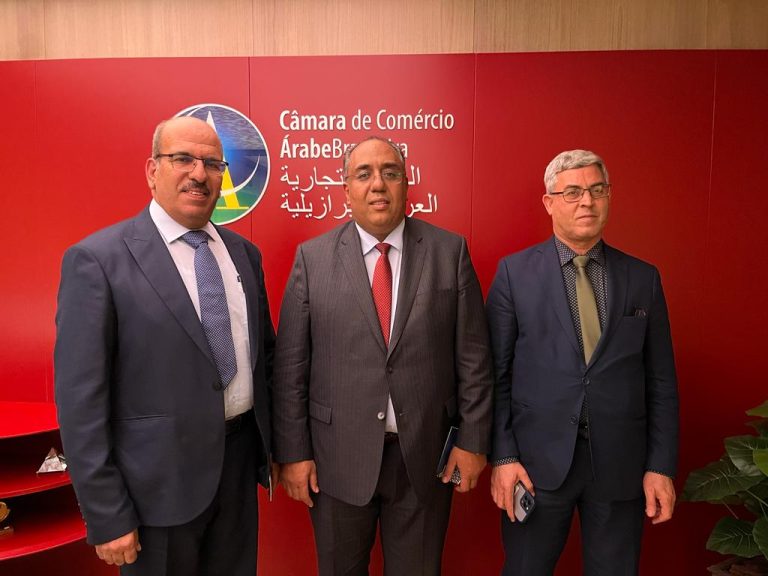São Paulo – Libya’s ambassador to Brasília, Osama Sawan, said that trade relations between the two countries have seen improvements following a stagnation during the COVID-19 and a moment of stabilization in Libya.
“Presidential elections will be held soon, and this is the key factor in the strategic change of the economy in Libya,” Sawan told ANBA during a visit to the headquarters of the Arab-Brazilian Chamber of Commerce (ABCC) on Tuesday (31).
The diplomat said his country is strategically located and is a link in the region, with a long coast and major ports. Brazil has almost 50 years of diplomatic relations with Libya.
“President Luiz Inácio Lula da Silva is a friend of Libya. He has visited the country on several occasions, and we hope Brazil’s embassy will be back to operating in Tripoli instead of Tunisia. Several embassies have returned already,” he said.
Sawan sees opportunities for Brazil to import oil and petrochemical products from Libya and export foods, industrialized goods, and raw iron. He believes a major obstacle in trade relations are transport, costs and bureaucracy. Brazilian products now come via Barcelona, Genoa or Dubai.
In 2022, Brazil exported USD 320 million to Libya, mostly poultry, iron ore, and beef. Brazil didn’t post imports from Libya in 2022, but other years saw imports of oil and oil products.
During the visit to the ABBC, the ambassador was accompanied by Libyan Iron & Steel Company (LISCO) chairman Mohamed Abdulmalek. Pictured, Sawan (C) and Abdulmalek (R).
They were welcomed by ABCC president Osmar Chohfi, International Relations vice president Mohamad Orra Mourad and Institutional Relations analyst Elaine Prates.
Abdulmalek said the Libyan iron and steel company is a major buyer of raw materials from Brazil and plans on start relying on the ABCC’s certification services. The country also mines iron ore in its south region and needs expertise and investments to study the raw material.
Translated by Guilherme Miranda




